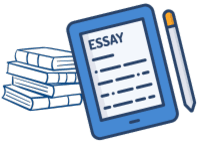Here you can read our FREE Guide on QSO 489 6-2 Final Project: Begin Work and its solution.
Instructions of QSO 489 6-2 Final Project: Begin Work
Overview
Web Page
Begin working on the third component of the capstone while incorporating feedback from the first two components.
For additional details, please refer to the Final Project Guidelines and Rubric.
Step-By-Step Guide QSO 489 6-2 Final Project: Begin Work
Recap
The previous Discussion posts revolved around different components of the Reflective Essay for the QSO 489 course. We went through different segments of the essay that we will add to the Reflective Essay.Introduction to QSO 489 6-2 Final Project
The QSO 489 6-2 Final Project: Begin Work is all about going through the concepts and components of the Reflective Essay. We have already discussed every section of the Reflective Essay in detail in the previous discussion post. As we have already followed through with the feedback section of the reflective essay in previous modules of QSO 489, we will revise the final project draft one more time to understand how we will incorporate the reflective essay with the final project.Key Considerations
Writing a reflective essay allows you to articulate your personal experiences and insights gained during an academic or practical project. Here are some important considerations to keep in mind while crafting a reflective essay:- Be Introspective: Reflective essays should go beyond merely recounting events. Focus on your thoughts, feelings, reactions, and reflections related to the experiences.
- Use a Clear Structure: Like any other academic essay, a reflective essay should have a clear introduction, body, and conclusion. The introduction should set the stage for what will be discussed, the body should delve into your reflections, and the conclusion should summarize your insights and learning.
- Connect Theory to Practice: If your reflection is based on a course or academic content, connect your practical experiences to theoretical concepts. This shows your understanding of how theoretical principles can be applied in real-world scenarios.
- Include Specific Examples: Use specific instances from your experiences to illustrate your points. This helps to ground your reflections and make them more tangible and relatable.
- Maintain a Professional Tone: Despite being personal, maintain a professional and academic tone throughout your essay. Avoid overly casual language and ensure your essay is well-edited and free from slang.
- Discuss Both Strengths and Weaknesses: Reflect on both what went well and what could have been improved. Acknowledging areas of weakness along with strengths demonstrates critical thinking and a willingness to learn and grow.
- Show Personal Growth: Highlight how the experiences have contributed to your personal development. Discuss any new skills acquired, insights gained, or changes in perspective.
- Maintain Confidentiality: If your reflection involves real-world situations involving others, ensure you maintain confidentiality and anonymity to respect privacy and ethical considerations.
- Be Honest and Authentic: A reflective essay should be genuine. It is important to be honest about your feelings and conclusions, even if they reveal mistakes or learning curves.
- Invite Feedback: Often, reflective essays are shared with instructors or peers. Be open to receiving feedback and use it as an opportunity for further reflection and professional growth.





